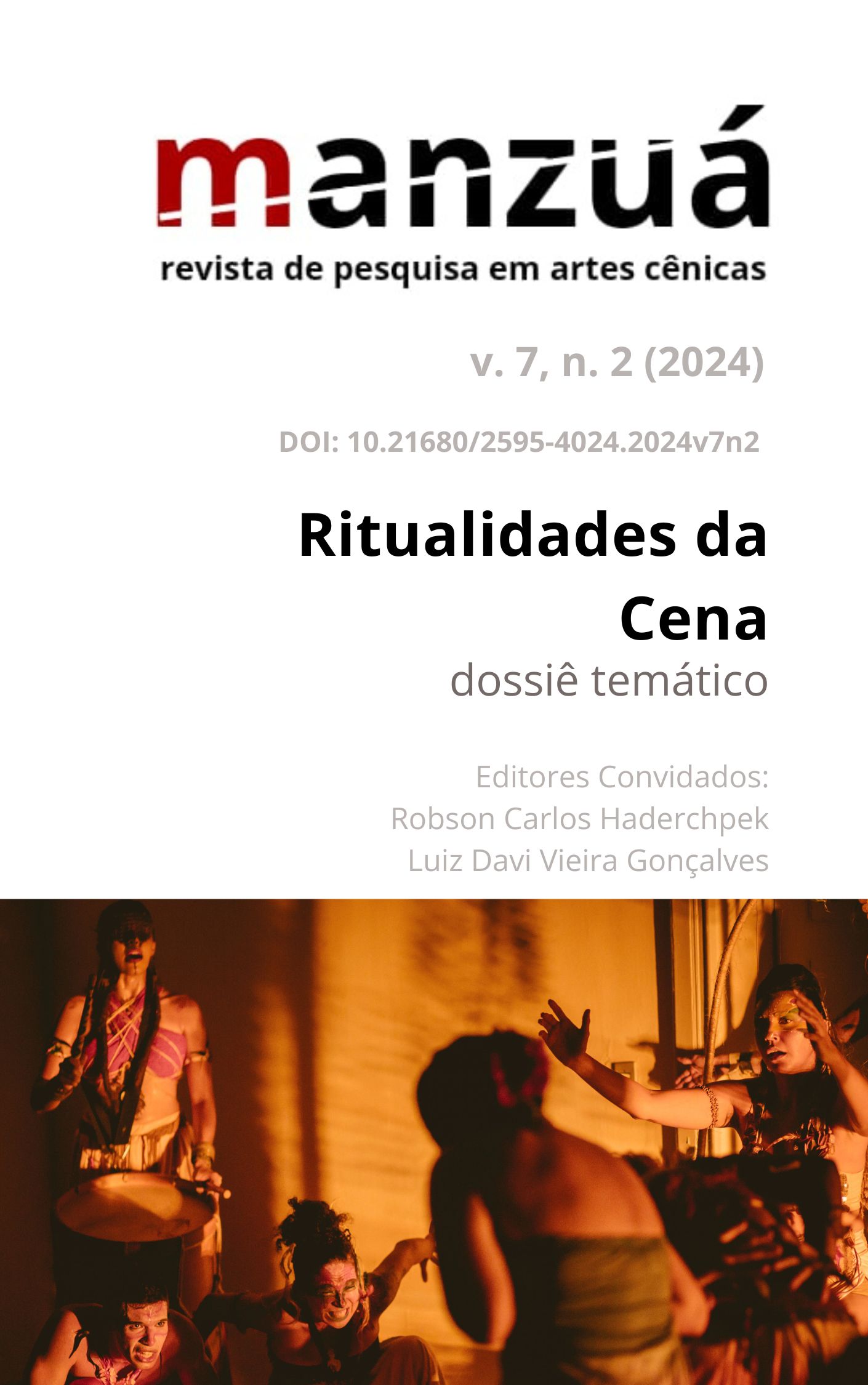TRANSMISSION OF KNOWLEDGE IN THE SHED
DOI:
https://doi.org/10.21680/2595-4024.2024v7n2ID37806Abstract
This article describes and reflects on the intersections of how the bumba meu boi demonstration brought us to the Boi da Floresta hut and the influences of this practice on artistic-pedagogical production. Reflecting on these spaces of socio educational initiatives, the article discusses three aspects involving the Boi da Floresta, located in the Liberdade neighborhood, São Luís, Maranhão: a) the forms of transmission of knowledge in the hut; b) the role of the hut for the Community and c) the crossing of the boi in artistic creations. This study used field research, collecting data through oral interviews from the perspective of a qualitative approach, considering the need for a subjective and horizontal relationship with the space and the object of the research. Aiming at the emergence of new materials during the investigation, it presents reflections on popular knowledge that result in different forms of artistic-pedagogical practice.
Keywords: Bumba meu boi. Popular culture. Traditional knowledge. Artistic experience. Theatrical pedagogy.
Downloads
Downloads
Published
How to Cite
Issue
Section
License
Copyright (c) 2024 Wiliam Euller Sousa Sá, Gisele Vasconcelos

This work is licensed under a Creative Commons Attribution-NonCommercial-ShareAlike 4.0 International License.
Autores que publicam nesta revista concordam com os seguintes termos:
Autores mantém os direitos autorais e concedem à revista o direito de primeira publicação, com o trabalho simultaneamente licenciado sob a Licença Creative Commons Attribution que permite o compartilhamento do trabalho com reconhecimento da autoria e publicação inicial nesta revista.
Autores têm autorização para assumir contratos adicionais separadamente, para distribuição não-exclusiva da versão do trabalho publicada nesta revista (ex.: publicar em repositório institucional ou como capítulo de livro), com reconhecimento de autoria e publicação inicial nesta revista.
Autores têm permissão e são estimulados a publicar e distribuir seu trabalho online (ex.: em repositórios institucionais ou na sua página pessoal) a qualquer ponto antes ou durante o processo editorial, já que isso pode gerar alterações produtivas, bem como aumentar o impacto e a citação do trabalho publicado (Veja O Efeito do Acesso Livre).


 Português (Brasil)
Português (Brasil) English
English Español (España)
Español (España) Français (Canada)
Français (Canada)